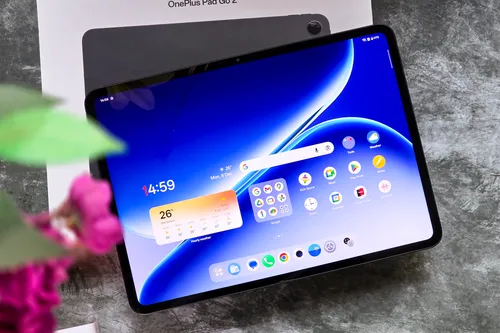
This $1 smart mask hunts chemicals in your breath to monitor asthma and other woes
The research team also demonstrated the masks' effectiveness in detecting blood alcohol levels in human subjects, hinting at its potential for on-site sobriety tests or other methods of monitoring alcohol consumption.

An Amazon Tale: Fake agents, leaked cart deets, and the OTP chase
Somehow, fraudsters are sourcing knowledge of your order deliveries. They’re using it to phish one-time passwords (OTP) from unsuspecting customers while acting as Amazon executives.

OnePlus Buds Pro 3 Review: The best audio deal in this corner of your wallet
OnePlus Buds Pro 3 aren’t exactly hewn from unicorn horn and fairy dust, but they still make the AirPods feel like gas station earbuds. Also, they just happen to sound FAN-TAS-TIC!

Ola is putting Krutrim AI chatbot on its electric scooters
“Hey Masakali.” No, really. That assistant hotword was in the company’s presentation. Woo!

Hey, hey, hey. The Lumia phone is back, baby. With Android.
The name’s Skyline. This one is from HMD. Previous licensee of the Nokia brand. Which once made those beautiful Windows phones. Imma cry!
Google Search could be smothering your creativity
A Carnegie Mellon University study reveals starting your brainstorming process with Google can be detrimental to the group's creativity.
Teams relying much on search engines often produced inundatingly same, less original ideas due to a cognitive bias called "fixation effect," where seeing popular answers converges our thought process instead of diverging it.

While individuals weren't necessarily dumber with Google, groups of Google users seemed to get stuck in a rut, often coming up with the same common ideas, sometimes even in the same order! Talk about a copy-and-paste creativity crisis.
"This appears to be due to the fact that Google users came up with the same common answers, often in the same order, as they relied on Google, while non-Google users came up with more distinct answers," explained lead author Danny Oppenheimer.
EDITORS' PICKS



